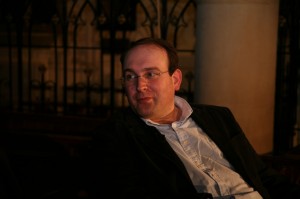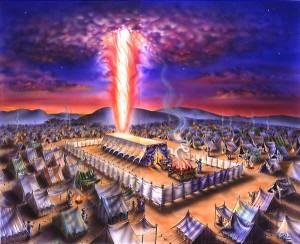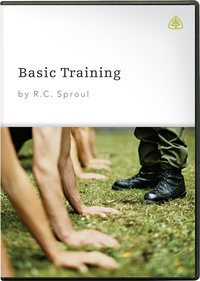Yearly Archives: 2011
Understanding the Reformation
 Michael Reeves is author of Unquenchable Flame: Discovering the Heart of the Reformation (B&H). He is also theological advisor for Universities and Colleges Christian Fellowship (UCCF), a charity supporting evangelism in higher education throughout the United Kingdom. He was previously associate minister at All Souls Church, Langham Place and holds a doctorate in systematic theology from King’s College London. In a recent interview by Matthew Barrett he (Michael Reeves) was asked the following about the Reformation:
Michael Reeves is author of Unquenchable Flame: Discovering the Heart of the Reformation (B&H). He is also theological advisor for Universities and Colleges Christian Fellowship (UCCF), a charity supporting evangelism in higher education throughout the United Kingdom. He was previously associate minister at All Souls Church, Langham Place and holds a doctorate in systematic theology from King’s College London. In a recent interview by Matthew Barrett he (Michael Reeves) was asked the following about the Reformation:
What was the church like during the Middle Ages and what did they believe when it came to salvation?
A big question! The church taught that we can be saved by grace. That is, we must be holy and righteous if we are to be saved, and so God in his mercy gives us the grace to make us holy and righteous. ‘Grace’, then, was thought of as being something like a spiritual can of Red Bull: grace would give you the inclination and the energy to be holy. And so, with enough ‘grace’, you could live a holy enough life to merit salvation.
The result was that people were left with no assurance and a strong desire to acquire more ‘grace’ (through attending Masses, going on pilgrimages etc). And even then, it was obvious that very few would manage to live holy enough lives to walk straight into heaven upon death. Thus developed belief in purgatory, a place in which the long process of sanctification-unto-salvation could be completed.
Put simply, the church had drifted a long way from being able to say with Paul ‘for me to live is Christ and die is gain.’
Were there any forerunners to the Reformation and what happened to them when they sought to voice their protest?
Indeed there were. Perhaps the most famous were John Wycliffe in England and Jan Hus in Bohemia (in the modern-day Czech Republic), but there were others. Wycliffe was a fourteenth-century Oxford theologian who taught – shockingly for the time – that the Bible is the supreme source of spiritual authority, and not the pope, as was normally assumed. This led him to reject a number of other then-standard beliefs, such as the idea of transubstantiation. He managed to die before he was officially declared by the church to be a heretic, but he left an important legacy in England: having organized a translation of the Latin Vulgate Bible into English, his followers dedicated themselves to the illegal practice of secret group Bible reading. In many ways that tilled the earth, ready for the seed of the Reformation.
His follower, Jan Hus, fared worse. Defending Wycliffe’s views in Bohemia, he was summoned to a church council and there in 1415 condemned to be burned to death for heresy.
How did Luther come to realize that the Roman Catholic Church was in error and what for Luther was at the heart of his disagreement with Rome?
It was a slow process for Luther, realizing that Rome was going astray in what it taught, and that it had effectively set itself up as an authority over Scripture, thus protecting its own error. At the heart of his disagreement was his understanding of Paul’s phrase ‘the righteousness of God’ (Romans 1:17). In his days as a monk, the phrase had always terrified him: he himself was not righteous, he knew; thus if God was righteous, that could only mean judgment and damnation for him. Then, studying Romans (again) in 1519, he began to see that for Paul, ‘the righteousness of God’ is something God has that he shares with us. God’s righteousness is a gift to sinners, something a sinner can be clothed with and thus stand, perfectly accepted, before the throne of God.
He explained his discovery in a little tract called The Freedom of a Christian (still available to read and still brilliant). At the heart of the tract is a story of a king who marries a prostitute, Luther’s allegory for the marriage of King Jesus and the wicked sinner. When they marry, the prostitute becomes, by status, a queen. It is not that she made her behaviour queenly and so won the right to the king’s hand. She was and is a wicked harlot through and through. However, when the king made his marriage vow, her status changed. Thus she is, simultaneously, a prostitute at heart and a queen by status. In just the same way, Luther saw that the sinner, on accepting Christ’s promise in the gospel, is simultaneously a sinner at heart and righteous by status. What has happened is the ‘joyful exchange’ in which all that she has (her sin) she gives to him, and all that he has (his righteousness, blessedness, life and glory) he gives to her. Thus she can confidently display ‘her sins in the face of death and hell and say, “If I have sinned, yet my Christ, in whom I believe, has not sinned, and all his is mine and all mine is his”.’
When we think of the Reformation it is Luther who gets most of the attention, but Zwingli also played an important role as well. Who was Zwingli and what was his contribution to the Reformation?
Zwingli was a Swiss contemporary of Luther’s who started an independent reformation in Zurich. The reason there could be such an independent movement was because both Luther and Zwingli had read Erasmus’ 1516 edition of the New Testament in its original Greek. Reading the Scriptures in their original language – instead of the sub-standard official Latin translation – was what had ignited reform in both their minds.
The reason Zwingli has been rather forgotten is probably because, quite simply, he was not as good a thinker as Luther. Zwingli’s reformation was all about opening up the Bible, but he was not as clear as Luther on why the Bible should be opened or what message it contains. For example, while Zwingli believed in justification by faith alone, it never had the same prominence in his thinking as it did for Luther and he would not teach it as clearly and persistently as would Luther.
What was so radical about the “Radical Reformers”? What aspects of their theology should we be thankful for and what aspects should we reject?
Well, the Radical Reformers were quite a broad bunch, ranging from mild and peaceful advocates of believer-only baptism (extremely controversial for the time) right through to sword-wielding, hot-headed heretics who denied the Trinity and other Christian essentials. What united them all was their conviction that the Reformation was going too slowly, or not far enough. Those who believed that that ongoing work of reform should be led by Scripture give us an inspiring example: many willingly faced grisly torture and death for their desire to see the church conformed to the word of God. What was unfortunate was their tendency to be theologically lightweight, more interested in holiness than the beliefs that can foster true holiness.
Talk to us about John Calvin, particularly his debate with Cardinal Jacopo Sadoleto. Do you see any resemblance between Sadoleto’s efforts to pull Protestants back home to Rome and the decision of some evangelicals today to return to Rome?
Calvin was a Frenchman, born a generation later than Luther and Zwingli. When, as a young man, he came to embrace the Reformation, he was forced to leave Catholic France for exile in Geneva, where he spent most of his adult life. His debate with Sadoleto in 1539 was one of the great intellectual showdowns of the Reformation. What happened was this: Sadoleto wrote an open letter to the city of Geneva, arguing for why they should abandon the Reformation they had come to embrace, and return to Roman Catholicism. The Reformation was a new-fangled heresy, he suggested, and one that discouraged holiness and so endangered souls. Calvin replied that the Reformers were only seeking to restore the old orthodoxy of the Church, an orthodoxy that had been buried under centuries of human tradition and error. And as for the idea that salvation by grace alone discouraged holiness, that entirely misunderstood salvation, as if it were something other than being freely brought to know, love, and so want to please a beautifully holy God.
As for similarities to today: yes, Sadoleto’s arguments do find echoes in, for example, Francis Beckwith’s Return to Rome, the story of why the President of the Evangelical Theological Society returned to Roman Catholicism. Like Sadoleto, Beckwith played down the fundamental theological differences between Catholicism and Evangelicalism, allowing himself to be lured by the appeal of Rome as the age-old mother of the faithful, the church that has never changed, that has always been one and the same. The moral of the story: evangelicals need to be aware of the theological chasm that separates them from Catholicism if they are to remain sincerely evangelical.
It is probably more accurate to speak of reformations than the reformation. Can you explain what brought about the Reformation in Britain and who were some of the major reformers in this movement?
With Luther, the Reformation was first and foremost a matter of doctrine. He believed that the Bible taught that God saves by his grace alone, and that the Bible was to be trusted on this, even though popes might differ. In Britain, many were won over by his arguments. However, what really shaped things in Britain was the monarch. King Henry VIII wanted a new wife; the pope couldn’t allow it, so Henry wanted to break with Rome. The Reformation thus proved useful to him. However, that the king wanted to break with Rome was also useful to British reformers – men like Thomas Cranmer, the Archbishop of Canterbury. The political cooperation of the crown and the reformers eventually meant that Britain became formally Protestant. That, of course, is something very different to having a nation of heartfelt evangelicals, and that was very much what the Puritans would seek to remedy.
Why was it such a big deal to have the Scriptures translated into the vernacular during the reformation period and who were some of the most important Bible translators?
Imagine that the United States had never had a Bible that people could read for themselves and you’ll sense why it was such a big deal! For something like a thousand years, Europe had been without a Bible people could read. Then Martin Luther translated the Scriptures from their original Hebrew and Greek into German; at the same time, William Tyndale translated them into English, and others translated them into French, Swedish, etc. To be able to read God’s words, and to see in them such good news that God saves sinners, not on the basis of how well they repent, but entirely by his own grace, was truly revolutionary and wildly exciting. When in 1538, for example, Henry VIII decreed that an English Bible be placed in every church, crowds thronged around those who could read them out loud enough. So great was the excitement that priests complained of how, even during the sermon, laypeople were reading the Bible aloud to each other. And it was a big deal because there could be no going back once the word had been unleashed: now butchers and bakers were discussing the Bible, coming to new convictions, and even daring to disagree with clergy over it. The church could no longer pontificate unchallenged. With Bible now in hand, people wanted to know where their priest got his ideas from.
Who were the Puritans and were they in basic continuity or discontinuity with the reformers before them?
Puritanism was a movement that began in England in the 1560s, but the term ‘Puritan’ actually lumps together quite a diverse lot: they held a variety of views on God, salvation and the church. What united them was the belief that the church in England needed to be more reformed by the word of God – and that the very hearts of their countrymen needed to be reformed.
The danger for them was that the desire to have people respond to the gospel could lead to a focus on the response, not the gospel. So, in looking for reformed lives (the sign that a person had responded rightly to the gospel), it was easy to let a concern for growth in personal holiness eclipse the original Reformation focus on justification. In other words, the Puritans could be tempted to concentrate on holy living in response to the gospel at the expense of proclaiming the free, saving grace of God. When that happened, the real spirit of reformation could be lost, and all the doubts and anxieties of medieval Catholicism come streaming back in through the back door of a zealous Christian moralism that had lost sight of the grace of God.
It was here that some of the Puritan ministries that are still most refreshing came in with the cure. Puritans like the heavenly Richard Sibbes proclaimed ‘the gracious nature and office of Christ; the right conceit of which is the spring of all service to Christ, and comfort from him’. That was the aim of all the major Puritans, and when they did that, they were being absolutely loyal to the first reformers.
Is the Reformation over today? Do Catholics and Evangelicals today pretty much agree on the doctrine of justification or are there still significant differences?
Understandably, many have wanted to claim that it is. Professor Mark Noll, for instance, has argued that ‘many Catholics and evangelicals now believe approximately the same thing’ about justification. That is no wild statement: in 1999, the Roman Catholic Church and the Lutheran World Federation signed the Joint Declaration on the Doctrine of Justification, claiming that ‘the subscribing Lutheran churches and the Roman Catholic Church are now able to articulate a common understanding of our justification’.
What exactly was being agreed upon was not clear, though, and the Catechism of the Catholic Church still defines justification as a process which includes our growth in holiness. With that understanding in place, Roman Catholicism still concludes that we can merit for ourselves eternal life – and do so with the aid of purgatory, indulgences and so on. But such doctrines simply cannot be squared with a Reformational understanding of justification, for if, as Luther argued, I am given the righteous status of Christ without that status being in any way dependent upon the state of my heart or life, then there is no place for a purgatory where I am made more worthy of heaven, or indulgences to speed me there.
The Reformation is far from over, then. And if, as the reformers believed, Reformation is essentially about being conformed ever closer to the word of God, it cannot be over. It is, in fact, precisely what we most need today.
Roger Olson’s book “Against Calvinism” – A Review by Dr. James White
Roger Olson doesn’t like to debate, and he doesn’t like to defend his assertions, either, but that did not stop Dr. James White from reviewing his book “Against Calvinism.” A very troubling aspect of Olson’s book is that he admits that even if God revealed Himself to be and to act, as Calvinists say He does, Olson would refuse to worship Him. That’s an amazing thing for a professed Christian to say.
Here is Dr. White’s review.
May I go in there?
 The following is taken from an illustration in John Phillips’ Exploring Hebrews commentary.
The following is taken from an illustration in John Phillips’ Exploring Hebrews commentary.
Imagine with me a Moabite of old gazing down upon the Tabernacle of Israel from some lofty hillside. This Moabite is attracted to what he sees so he descends the hill and makes his way toward the Tabernacle.
He walks around this high wall of dazzling linen until he comes to a gate and at the gate, he sees a man. “May I go in there?” he asks, pointing to the gate where all the bustle of activity in the Tabernacle’s outer court can be seen.
“Who are You?” demands the man suspiciously.
“I’m from Moab,” the stranger replies.
“Well, I’m very sorry, but you can’t go in there. You see, it’s not for you. The Law of Moses has barred the Moabite from any part in the worship of Israel until his tenth generation.”
The Moabite looks so sad and said, “Well, what would I have to do to go in there?”
“You would have to be born again,” the gatekeeper replies. “You would have to be born an Israelite, of the tribe of Judah, or of the tribe of Benjamin or Dan.”
“Oh, I wish I had been born an Israelite,” the Moabite says and as he looks again, he sees one of the priests, having offered a sacrifice at the brazen altar and the priest cleansed himself at the brazen laver and then the Moabite sees the priest enter the Tabernacle’s interior. “What’s in there?” asks the Moabite. “Inside the main building, I mean.”
“Oh,” the gatekeeper says, “That’s the Tabernacle itself. Inside it contains a lampstand, a table, and an altar of gold. The man you saw was a priest. He will trim the lamp, eat of the bread upon the table and burn incense to the living God upon the golden altar.”
“Ah,” sighs the Moabite, “I wish I were an Israelite so that I could do that. I would so love to worship God in there and help to trim the lamp and offer Him incense and eat bread at that table.”
“Oh, no, the gatekeeper hastens to say, “even I could not do that. To worship in the holy place one must not only be born an Israelite, one must be born of the tribe of Levi and of the family of Aaron.”
The man from Moab sighs again, “I wish that I had been born of Israel of the tribe of Levi of the family of Aaron,” and then, as he gazes wistfully at the closed Tabernacle door, he says, “What else is in there?”
“Oh, there’s a veil. It’s a beautiful veil I’m told and it divides the Tabernacle in two. Beyond the veil is what we call ‘the Most Holy Place’… ‘the Holy of Holies.’”
“What’s in the Holy of Holies?” the Moabite asks.
“Well, there’s the sacred chest in there and it’s called the Ark of the Covenant. It contains holy memorials of our past. Its top is gold and we call that the mercy seat because God sits there between the golden cherubim. Do you see that pillar of cloud hovering over the Tabernacle? That’s the Shekinah glory cloud. It rests on the mercy,” said the gatekeeper.
Again, a look of longing comes over the face of the Moabite man. “Oh,” he said, “if only I were a priest! How I would love to go into the Holy of Holies and gaze upon the glory of God and worship Him there in the beauty of His holiness!’
“Oh no!” said the man at the gate. “You couldn’t do that even if you were a priest! Only the high priest can enter the Most Holy Place. Only he can go in there. Nobody else!”
The heart of the man from Moab yearns once more. “Oh,” he cried, “If only I had been born an Israelite, of the tribe of Levi, of the family of Aaron. If only I had been born a high priest! I would go in there every day! I would go in there three times a day! I would worship continually in the Holy of Holies!”
The gatekeeper looked at the man from Moab again and once more shook his head. “Oh now,” he said, “you couldn’t do that! Even the high priest of Israel can go in there only once a year, and then only after the most elaborate preparations and even then only for a little while.”
Sadly, the Moabite turned away. He had no hope in all the world of ever entering there!
“Therefore, brothers, since we have confidence to enter the holy place by the blood of Jesus, by the new and living way that he opened for us through the curtain, that is, through his flesh, and since we have a great priest over the house of God, let us draw near with a true heart in full assurance of faith” (Hebrews 10:19-22).
Here it is, a tremendous word of welcome, extended to Jew and Gentile alike, to come on in and worship, not in the holiest place of the human tabernacle, but into the Holy of Holies in heaven itself “by the blood of Jesus.”
Friday Round Up
 (1) Dr. James White has recorded the first of two responses to Roger Olson’s new book “Against Calvinism” found to see whether you are in the faith. Test yourselves. Or do you not realize this about yourselves, that Jesus Christ is in you? — unless indeed you fail to meet the test!”(2 Cor 13:5). This command of self examination leads us to inevitable questions such as “How may I know I am truly His?” and “How may I know that I am elect?” A. W. Pink suggested seven things to look for:
(1) Dr. James White has recorded the first of two responses to Roger Olson’s new book “Against Calvinism” found to see whether you are in the faith. Test yourselves. Or do you not realize this about yourselves, that Jesus Christ is in you? — unless indeed you fail to meet the test!”(2 Cor 13:5). This command of self examination leads us to inevitable questions such as “How may I know I am truly His?” and “How may I know that I am elect?” A. W. Pink suggested seven things to look for:
First, by the Word of God having come in divine power to the soul so that my self-complacency is shattered and my self-righteousness is renounced.
Second, by the Holy Spirit convicting me of my woeful, guilty, and lost condition.
Third, by having had revealed to me the suitability and sufficiency of Christ to meet my desperate case and by a divinely given faith causing me to lay hold of and rest upon Him as my only hope.
Fourth, by the marks of the new nature within me – a love for God; an appetite for spiritual things; a longing for holiness; a seeking after conformity to Christ.
Fifth, by the resistance which the new nature makes to the old, causing me to hate sin and loathe myself for it.
Sixth, by avoiding everything which is condemned by God’s Word and by sincerely repenting of and humbly confessing every transgression. Failure at this point will surely bring a dark cloud over our assurance causing the Spirit to withhold His witness.
Seventh, by giving all diligence to cultivate the Christian graces and using all diligence to this end. Thus the knowledge of election is cumulative.
 (3) Once again, Ligonier has some SUPER deals today in this week’s $5 Friday sale. The online sale starts at 8 a.m. EST and goes on for 24 hours or until items are sold out. Check out the $5 Ligonier sale here
(3) Once again, Ligonier has some SUPER deals today in this week’s $5 Friday sale. The online sale starts at 8 a.m. EST and goes on for 24 hours or until items are sold out. Check out the $5 Ligonier sale here.
By the way, remember that for any purchase at Ligonier, click on the green Ligonier Ministries image to the right and when placing an order, use the code “EGRACE10” and it will give you a 10% discount as a reader of this blog.
(4) Kevin DeYoung wrote the following at his blog: I received an email from a woman with some suggestions on what not to say to single women in your church. I thought her comments rang true and were well written. She gave me permission to post them here.
“I keep praying for someone to come along for you.” Thanks for your prayers. I hope someone comes along too. Instead of praying for that, why don’t you pray that I would be growing in Christlikeness so that if Mr. Wonderful walks into my life, I would be better suited to be a helpmate for him.
“I don’t know why no young man hasn’t scooped you up and carried you off yet.” I know this is supposed to be a compliment and that the intention of the kind woman is to tell me that she thinks I’m worth marrying. I appreciate that you think so highly of me. Unfortunately when you say this I immediately try to answer the question of why no one has carried me off. Am I too much of one thing and not enough of another? Do I not look right? Am I too soft spoken or too loud? What do I need to change about myself since obviously something is wrong with me if I haven’t been taken off the market? Maybe I should go read Proverbs 31 again to figure it out.
“You should move somewhere where there are more young men, or maybe go to a church with more single people.” There is some merit to having a community that you can feel comfortable with, but comments like this aren’t helpful for several reasons. First, it makes it seem like the goal of going to church or moving somewhere is to find a spouse. That’s not why you go to church. Second, it feeds the controlling nature of most women to want to put their matrimonial future into their own hands instead of trusting God. It’s a slippery slope that is all too easy to find yourself on. What woman wouldn’t want to go to a church filled with thousands of single men just waiting to find a wife? You could just ask them all to fill out applications and have a screening process. It could be the church version of The Dating Game. Third, some women don’t have the option of moving, so pointing out to them that there might be “greener pastures” on the other side of the fence doesn’t help them be content in their current situation. It can be a daily struggle for some women to be ok with where they are at in life, and indirectly telling them that their life would be better somewhere else doesn’t help.
“Have you ever thought about online dating?” Many, many wonderful Christian people have met and married through online dating. It’s the wave of the future without a doubt. But it is still something that brings embarrassment to the person. It can sometimes feel like the question is really saying “I see that you’ve completely failed at attracting anyone in your physical world so have you tried to do it in an online world?” It reminds me of being kicked off the varsity team and ending up on the bench for the JV.
“Don’t you want to get married and have children?” This is usually in response to a statement about being content in my current state. Being content is not the same as having no desire for something. Yes, I do want to get married and have children, but there’s not a whole lot that I can do about it. I don’t have a lot of control over who I come across and whether they would like to ask me out. And although I would like these things, my life is not somehow a failure if I do not achieve them. I would love to be able to have the blessings that come with marriage and children, but it should not be more than my desire to have the blessings of a relationship with Christ.
Single people have a responsibility as well to not be overly sensitive. Singleness can be a deep trial, but making little things into big deals because someone unintentional prodded that hurt isn’t the way to go. Single people need to extend grace, knowing that the intentions of people are good and out of their love for them.
Kevin writes: These are wise words. I especially appreciate this woman’s attitude: understanding that these things are said by people who mean well and acknowledging that over-sensitivity can be a problem too. But it’s certainly worthwhile to think about how you and your church could be welcoming and supportive in the best way possible. The letter above will help.
(5) I encourage you to check out the Reformation apparel by clicking on the Missionalwear logo to the right. There are some very cool items that have now become available for both men and women.
Where technology is headed…
Interview with Dr. John Piper (from Australia)
Here’s a 12-minute interview on women’s ministry with Pastor John Piper from the Women’s Katoomba Convention in Australia, where he is asked the following questions:
Time markers:
00:23 — How long have you been a Christian?
1:41 — Why are you still a Christian at 65 years old?
3:03 — What are the obstacles you see to living a worthy life?
5:39 — What advice would you give to women about a worthy life?
8:36 — On the ministry of mothers.
9:34 — What do you benefit so much from Christian biography?
John Piper interviewed for Women’s Katoomba Convention from kcc on Vimeo.
Islam A to Z
 Here are two outstanding presentations on the subject of Islam, made by my friend Dr. James White. As you watch them, I am sure you will note both the respect in which the topic is handled as well as the sincere desire to be accurate in what is said. This is important information for both the Christian and the Muslim in our day.
Here are two outstanding presentations on the subject of Islam, made by my friend Dr. James White. As you watch them, I am sure you will note both the respect in which the topic is handled as well as the sincere desire to be accurate in what is said. This is important information for both the Christian and the Muslim in our day.
(1) Historical Background of Islam (with questions and answers)
Islam A to Z: Session 1 and Q&A from Lakeview Christian Center on Vimeo.
(2) Theology and Beliefs of Islam (with questions and answers)
Islam A to Z: Session 2 and Q&A from Lakeview Christian Center on Vimeo.
This Little Blog of Mine
 This effectual grace blog celebrates its 1st birthday today. That’s right, somewhere in cyber space, this little blog appeared for the first time on November 2, 2010.
This effectual grace blog celebrates its 1st birthday today. That’s right, somewhere in cyber space, this little blog appeared for the first time on November 2, 2010.
I feel I have grown a great deal through the process of putting together the more than 750 posts on more than a 140 different categories. I must say that I have both valued and learned from the many comments I have received, even from those who have had strong disagreements with me. I hope you feel you have benefitted by your visits here and desire to continue the journey, learning and growing together in grace and knowledge of God.
 Its hard to fathom this, but last month alone, people from all 50 states of the USA and 99 different countries stopped by for a visit here. Knowing this causes two definite reactions in me. Firstly, it humbles me profoundly to know that many look to this blog for sound biblical teaching, and secondly, it fills me with holy awe concerning the tremendous responsibility just such an audience places in my hands.
Its hard to fathom this, but last month alone, people from all 50 states of the USA and 99 different countries stopped by for a visit here. Knowing this causes two definite reactions in me. Firstly, it humbles me profoundly to know that many look to this blog for sound biblical teaching, and secondly, it fills me with holy awe concerning the tremendous responsibility just such an audience places in my hands.
Though I try not to take myself too seriously, I must take His truth seriously. It would be the height of presumption to steer even one of God’s precious sheep in the wrong direction. As Jesus made clear, to whom much is given, much is required.
My prayer is that this blog will always be a place for God’s truth to shine forth like a beacon in this dark world, and a place where His gospel is clear in its declaration and wide in its reach. May our great tri-une God, Father, Son and Holy Spirit receive all the praise, honor and glory.
If you have something positive to share in the way of feedback, it would be great to hear from you. Please feel free to write a comment below. If you don’t feel you have anything positive to share, well thanks for stopping by anyway.
May God bless you richly!
John
An amazing recovery
 I am very thankful to God right now. Many of you have been praying for my friend Jim who died (for 18 minutes) back in June. The fact that he is even still alive is a miracle. He’s been living at my home gaining strength and gradually we have seen him take small steps on the road to recovery… until THIS AFTERNOON he was well enough to go back to work for the very first time since his massive heart attack. ALL GLORY TO THE LORD.
I am very thankful to God right now. Many of you have been praying for my friend Jim who died (for 18 minutes) back in June. The fact that he is even still alive is a miracle. He’s been living at my home gaining strength and gradually we have seen him take small steps on the road to recovery… until THIS AFTERNOON he was well enough to go back to work for the very first time since his massive heart attack. ALL GLORY TO THE LORD.
